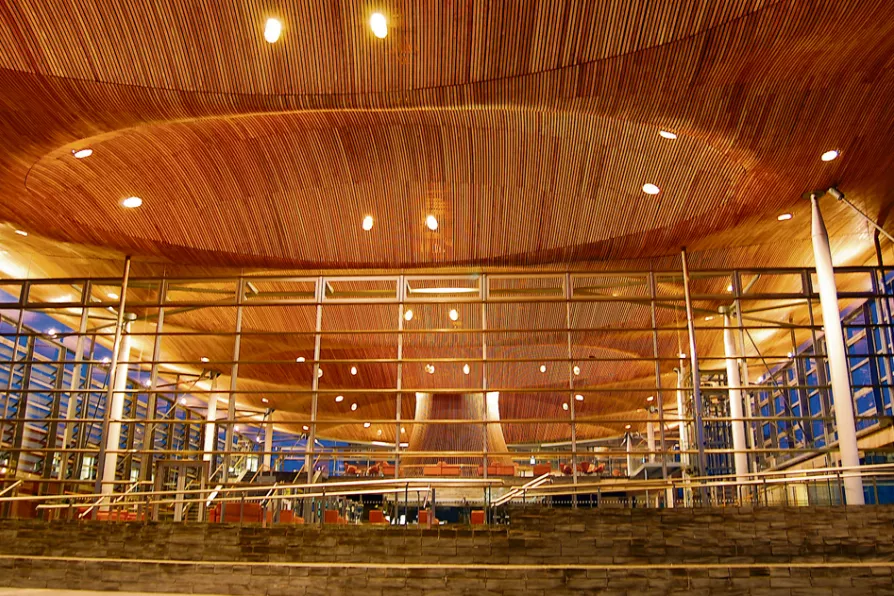As tens of thousands return to the streets for the first national Palestine march of 2026, this movement refuses to be sidelined or silenced, says PETER LEARY

 PRIDE OF PLACE: The Welsh National Assembly building in Cardiff
[eNil/Creative Commons]
PRIDE OF PLACE: The Welsh National Assembly building in Cardiff
[eNil/Creative Commons]
ON September 18, 1997, the people of Wales voted on whether they should have a National Assembly. The referendum was held following the election of a Labour government pledged to campaign for a “Yes” vote.
The result was the narrowest majority — by 50.3 per cent to 49.7 — in favour of establishing the National Assembly of Wales.
However, the turnout was only a tiny fraction above 50 per cent of the registered electorate. This meant that only 25 per cent of electors in Wales actually voted for the Assembly, by a majority of less than 7,000 of the one million votes cast.

Plaid Cymru’s spokesman on health and social services MABON AP GWYNFOR, in the second article of a two-part series, argues that Labour’s contempt for voters and backward-facing approach have led to widespread mistrust in Wales

JACKIE OWEN and DYLAN LEWIS-ROWLANDS argue that Welsh Labour conference this weekend is the be-all and end-all moment if Labour wants to avoid a rout at next year’s election













